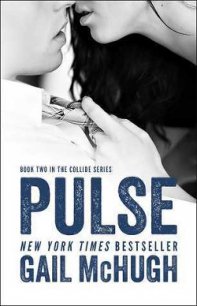The Secret Servant - Lyall Gavin (книги без регистрации бесплатно полностью сокращений .txt) 📗
De Carette chattered on, pointing at views through the window, picking up little silver and china ornaments and showing them to Agnes. His English was very fluent, contrasting with his French habit of cocking his head, bird-like, at a fresh angle for every new phrase.
When they had finished the first glass, he poured refills and then they all sat down. Now it begins, Maxim thought. De Carette had dressed the part carefully, in a dark green velvet smoking jacket over narrow check trousers, a precisely folded silk kerchief at his throat.
"And what, if it not is a secret, is a major of the light infantry – I believe you said you were a chasseur? You know of course that I was once of the Chasseurs d'Afrique? – what is he doing in Number 10 Downing Street?"
"What's any major doing without a command?"
"Yes… it can be an… an uncertain rank."
"It can last a long time."
"But for you, obviously it will not." It was politely put. He didn't ask Agnes what she did, so he probably knew. There would be well-placed friends in London.
"And now, what may I do for you?"
They had talked over this moment and hadn't managed to think of any better tactic than honesty, though Agnes had certainly tried.
Maxim began his party recitation. "A couple of years ago, a man called Bob Etheridge died in Montreal. When he knew he was dying, he wrote a letter to a man in our Ministry of Defence, Gerald Jackaman." But de Carette gave no flicker of recognition. He smiled and nodded. "Jackaman committed suicide last November. His widow took the letter and – we now know – offered to sell it to the Russians. Whether or not they have it, we have no idea. Somebody killed her. We do know the letter says something about Professor John White Tyler. We hoped you might be able to tell us what could be in it."
"Ah yes. John is somebody quite important, now."
Agnes said: "He's coming up to some delicate negotiations on European defence, soon. Of course, we'd rather you didn't spread that around."
De Carette smiled again, accepting that she had passed a little of the responsibility onto him. "Yes… John would be good for that work… But why do you ask me?"
"You, Tyler and Etheridge were the only survivors of that last Long Range Desert Group patrol," Maxim said. "It's the only thing that connects you. He doesn't mention either of you in his book again."
"You might always ask John himself."
"We may have to," Agnes said. "But that won't stop the Other Side, if they haven't got the letter, coming and asking you. They can read books, too."
De Carette's eyebrows leapt into a sardonic slant. "Are you trying to frighten me, Miss Algar?"
"Am I succeeding?"
But he just sipped his wine and cocked his head back at Maxim. "This letter seems… like the jewel one takes from the idol and then, whoever owns it, he must die. What did poor Etheridge die from?"
"Drink."
De Carette slanted his eyebrows again and began a cold chuckle. Abruptly it became a retching cough. He stiffened and went very pale, Maxim and Agnes leaning forward but unsure how they could help. Then de Carette lifted his hand feebly and waved them back. For a long time he sat very upright in his seat, seeming to hold his chest together with his hands.
At last he took out a folded handkerchief and wiped his lips, ignoring the sparkle of sweat on his deep forehead. After a sip of wine, he said carefully: "I am very sorry, but it is all right now. But tell me.. what is John Tyler dying from?"
Maxim blinked at him, puzzled. Agnes shrugged and muttered: "Le baisage."
"John? That is strange… in the desert, he was like a monk."
"In the desert, did you have any choice?"
"A-small amount. And certainly a choice of conversation."
Maxim asked: "And what are you dying of, sir?"
De Carette seemed to ignore him. He got up slowly and walked around the room, weaving carefully between the furniture until he reached the south wall. That was the only one with window seats built into it. He stared down into the valley.
"I saw you coming. I have watched for a long time because I knew that one day somebody would come. And I thought they might be too late. The doctors told me I have la tuberculose. You see, they cannot call it cancer of the lung because the government owns the monopoly of tobacco and so we do not have cancer of the lung in France. It is probably forbidden by some law of some thirteenth of July…"He lifted his hands in a weary gesture, and turned back from the window.
"So you are right, Major. And… I also thought to write a letter. But I could not decide where to send it. My wife is dead, my sons… I am not sure they would understand. Perhaps you will, Major." He came back and sat down. "Some more wine…"
Maxim got up quickly and poured it; that just about killed the bottle, and de Carette took a small telephone from beside the fire and gave orders.
"The family de Carette has always been of the Army. Some to the Navy, but most to Saint-Cyr. You can see…" The panelled walls were lined with austerely framed photographs of groups of officers, some sitting in rigidly posed rows, some grinning across the crumpled mudguard of a Sherman tank. Many were far too old to be of this de Carette, but his career was all there: the stiff-necked graduate of Saint-Cyr, the sous-lieutenant among black troops in Africa, sharing a jeep with Ledere, being decorated by de Gaulle, in Hanoi with de Lattre de Tassigny…
But not in the desert with John White Tyler.
An old lady came into the room carrying a new tray of glasses and a bottle, the cork already drawn. De Carrette thanked her brusquely.
"And so… when I had my commission, I was humiliated to be posted to Africa. We all knew, we young officers, that a war must come in Europe – was that hope, perhaps? – but nothing could come to Fort Archimbault or de Possei. But a soldier who argues with orders is arguing with his luck, perhaps his life. We listened on the radio as France died, day by day, and we cursed God. Yet the officers who stayed there were defeated or dismissed. And the few – there were some – who tried to maintain the Army of the Armistice at Vichy, to keep something sacred from the politicians and Germans, something they could one day build on again (perhaps I understand those men better, now) after the war they were assumed to be collaborators and anybody who had been in Africa was a hero."
He smiled at Agnes. "Enfin, I became a hero."
But not quickly. He was among the first to come north and join up with 8th Army in the desert, but his knowledge of English doomed him to a series of liaison jobs with the Staff. He saw little action except in Cairo bedrooms – "They were all spies, those girls, but they learned nothing from me, not in any way, alas. I was very young…" Then it was 1942. Alamein, and what really did seem like the last push westwards. He was to go forward to Benghazi and on by single-engined Waco down to join the Long Range Desert Group, who needed a French officer. His contact would be Captain John White Tyler. "But of course, you know all this from John's book."
"We'd like to hear your version, sir," Maxim said.
De Carette took a mouthful of wine and cocked his head as if he were tasting it for the first time. "It is bizarre. What I most remember is how we all smoked cigarettes, all the time, whenever anything happened or did not happen… I smoked far more cigarettes than I fired bullets…"


